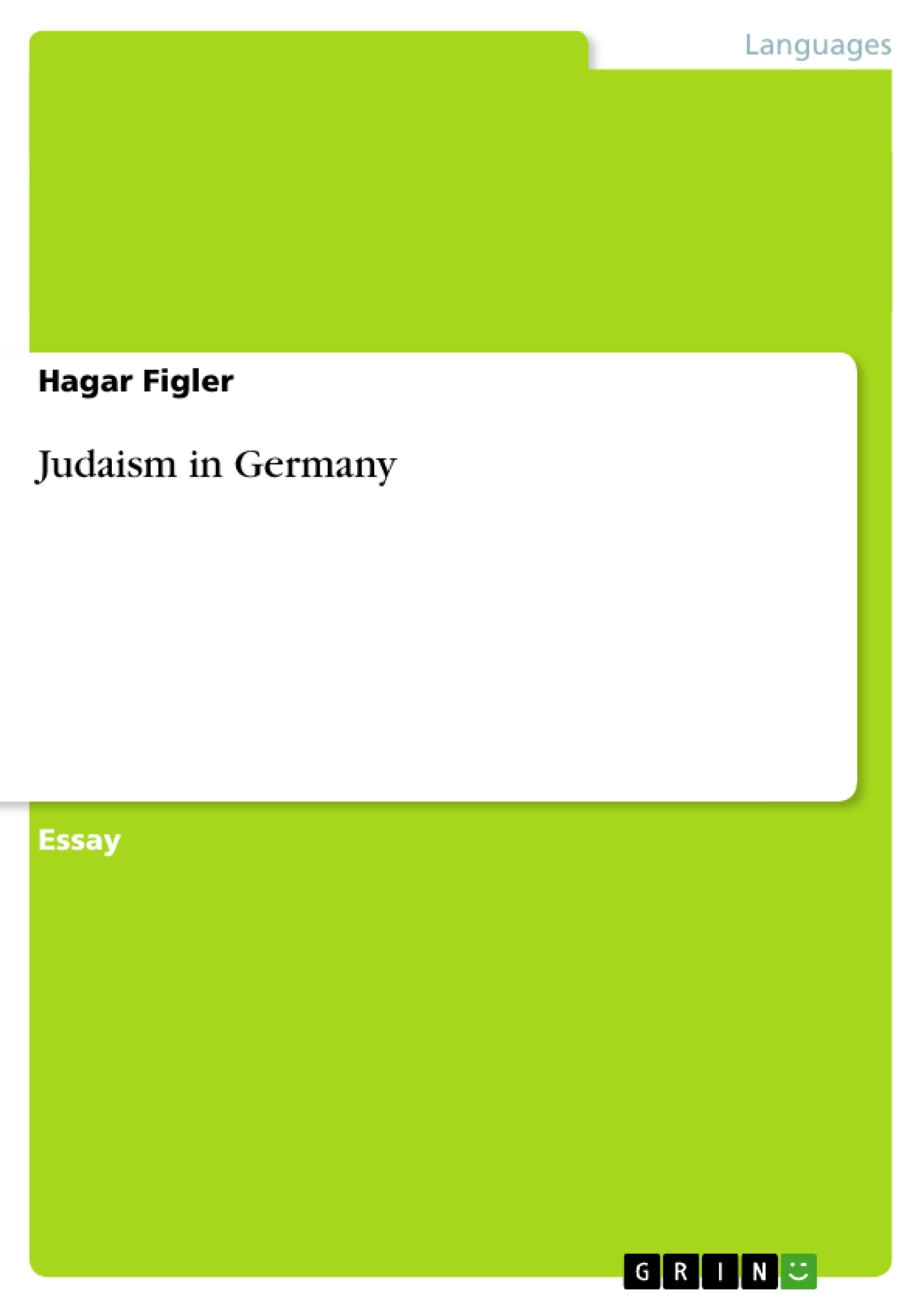Today, more than 100.000 Jews live in Germany. The Jewish world in Germany, with 83 local communities, is the third largest in Western Europe and the fastest growing in the world after Israel itself. After the horrors of the Shoah, this comes close to being a miracle. Jews have lived in Germany for almost 2.000 years, ever since Roman times, and the Jewish history and heritage in Germany are amazingly rich and diverse. However, the German-Jewish relationship will forever be marked by the Shoah. The memories will never disappear, and the Jewish people’s relationship with Germany will for a long time, if not forever be strongly influenced by the Shoah.
Inhaltsverzeichnis (Table of Contents)
- Thesis Statement
- Abstract
- Introduction
- Judaism in Germany
- Conclusion
- Bibliography
Zielsetzung und Themenschwerpunkte (Objectives and Key Themes)
This paper explores the possibility and opportunity of a genuine German-Jewish dialogue in the context of the Holocaust. It examines the challenges faced by both Jews and Germans in coming to terms with the past and fostering a future relationship marked by understanding and mutual respect.
- The lasting impact of the Holocaust on the German-Jewish relationship
- The complexities of addressing guilt and responsibility for the past
- The role of historical awareness and remembrance in shaping German identity
- The diversity of perspectives within both the German and Jewish communities
- The challenges and opportunities for building a positive future relationship
Zusammenfassung der Kapitel (Chapter Summaries)
- Thesis Statement: The paper asserts that the Holocaust will forever cast a shadow on the German-Jewish relationship, marked by both pain and guilt.
- Abstract: This section provides an overview of the Jewish community in Germany, highlighting its growth and the enduring impact of the Holocaust.
- Introduction: The introduction sets the context for the discussion by outlining the Jewish community in Germany and the complex challenge of establishing a genuine German-Jewish dialogue.
- Judaism in Germany: This chapter examines the shared awareness of the Holocaust among Germans and Jews and explores the diverse perspectives on coming to terms with the past. It presents various viewpoints, including those of former Chancellor Schroeder and the public opinions on guilt and responsibility.
Schlüsselwörter (Keywords)
The primary keywords and focus topics of this work include the Holocaust, German-Jewish dialogue, guilt, responsibility, historical awareness, remembrance, identity, and perspectives.
Frequently Asked Questions
How large is the Jewish community in Germany today?
There are currently more than 100,000 Jews living in Germany, organized in 83 local communities. It is one of the fastest-growing Jewish populations in the world.
How has the Holocaust influenced the German-Jewish relationship?
The relationship is forever marked by the memory of the Shoah. It creates a complex dynamic of guilt, responsibility, and the ongoing challenge of fostering a genuine dialogue based on historical awareness.
What are the challenges for a positive German-Jewish future?
Challenges include addressing the lasting impact of trauma, navigating diverse perspectives on guilt, and ensuring that remembrance remains a central part of German identity without preventing growth.
How long is the history of Jews in Germany?
Jews have lived in German territories for almost 2,000 years, dating back to Roman times, leaving behind a rich and diverse cultural heritage.
What role does historical remembrance play in modern German identity?
Remembrance is a cornerstone of modern German political culture, serving as a commitment to human rights and a safeguard against the repetition of past horrors.
- Citar trabajo
- Hagar Figler (Autor), 2006, Judaism in Germany, Múnich, GRIN Verlag, https://www.grin.com/document/85834



